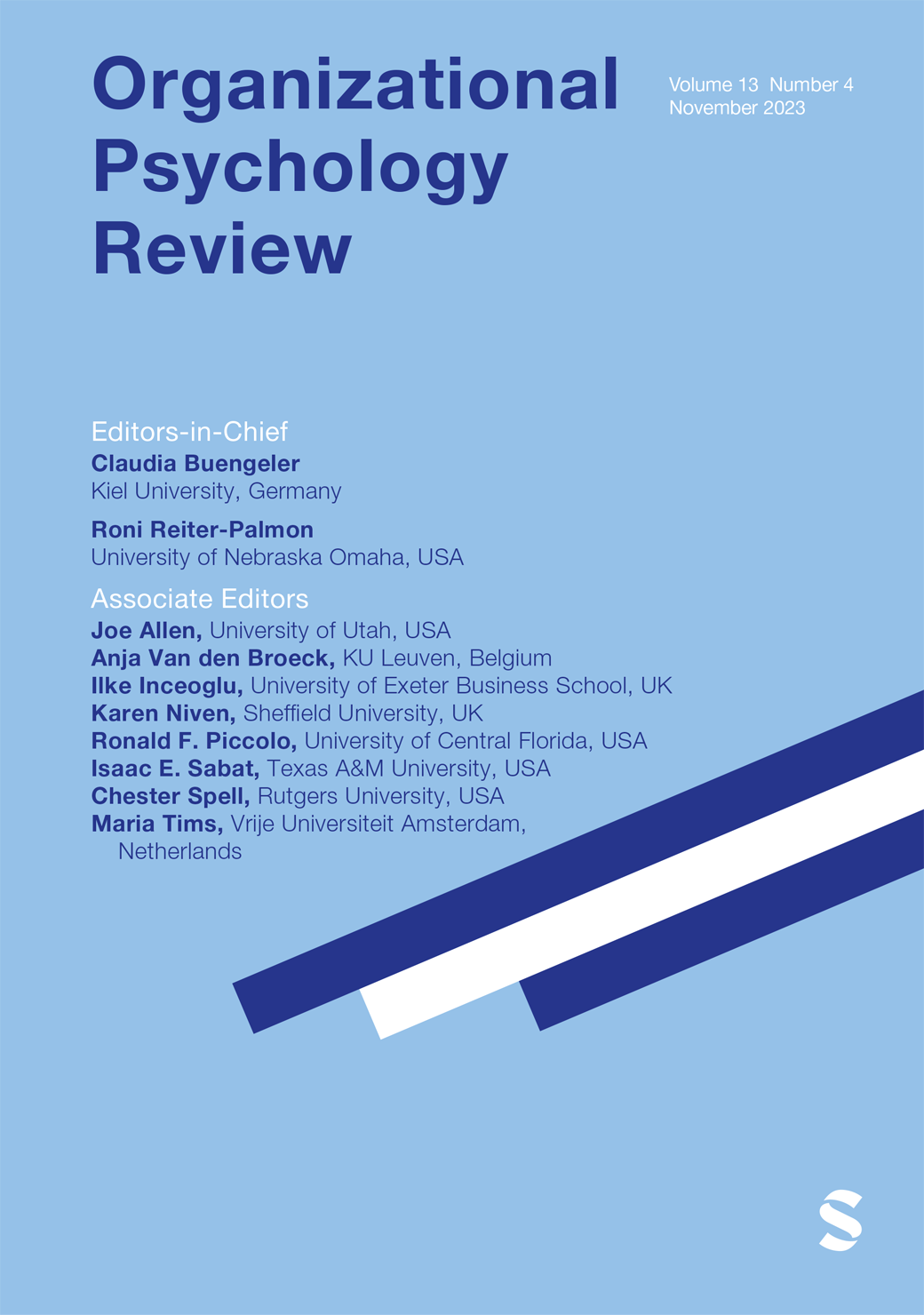Constructive and destructive leadership in job demands-resources theory: A meta-analytic test of the motivational and health-impairment pathways
IF 7.1
1区 心理学
Q2 MANAGEMENT
引用次数: 0
Abstract
Integrating the leadership literature with Job Demands-Resources (JD-R) theory, we conducted a pre-registered meta-analysis of the relations of different leadership behaviors with followers’ work engagement and burnout. We found that constructive leadership relates positively to followers’ work engagement ( k = 588, [Formula: see text] =.467) and negatively to followers’ burnout ( k = 346, [Formula: see text] =−.327), whereas destructive leadership relates negatively to followers’ work engagement ( k = 72, [Formula: see text] =−.220) and positively to followers’ burnout ( k = 122, [Formula: see text] =.381). We furthermore demonstrated that both followers’ work engagement and burnout partially mediate the relations of both constructive and destructive leadership with followers’ job performance. However, the indirect relation of constructive leadership with followers’ job performance via followers’ work engagement is clearly the strongest, suggesting that leaders stimulate followers’ job performance primarily because they motivate followers. We discuss how the findings of this theory-driven meta-analysis help to integrate leadership research in JD-R theory and generate important insights for leadership behavior and training.工作需求-资源理论中的建设性与破坏性领导:动机与健康损害路径的元分析检验
将领导文献与工作需求资源(JD-R)理论相结合,我们对不同领导行为与追随者工作投入和倦怠的关系进行了预先注册的荟萃分析。我们发现,建设性领导与追随者的工作投入呈正相关(k = 588,[公式:见正文]=.467)和对追随者倦怠的负面影响(k = 346,[公式:见正文]=−.327),而破坏性领导与追随者的工作投入呈负相关(k = 72,[公式:见正文]=−.220),并对追随者的倦怠产生积极影响(k = 122,[公式:见正文]=.381)。我们进一步证明,追随者的工作投入和倦怠在一定程度上调节了建设性和破坏性领导与追随者工作表现的关系。然而,建设性领导通过追随者的工作参与与追随者的工作表现之间的间接关系显然最强,这表明领导者激励追随者的工作绩效主要是因为他们激励追随者。我们讨论了这一理论驱动的荟萃分析的发现如何有助于将领导力研究整合到JD-R理论中,并为领导力行为和培训产生重要见解。
本文章由计算机程序翻译,如有差异,请以英文原文为准。
求助全文
约1分钟内获得全文
求助全文
来源期刊

Organizational Psychology Review
Multiple-
CiteScore
10.00
自引率
1.60%
发文量
25
期刊介绍:
Organizational Psychology Review is a quarterly, peer-reviewed scholarly journal published by SAGE in partnership with the European Association of Work and Organizational Psychology. Organizational Psychology Review’s unique aim is to publish original conceptual work and meta-analyses in the field of organizational psychology (broadly defined to include applied psychology, industrial psychology, occupational psychology, organizational behavior, personnel psychology, and work psychology).Articles accepted for publication in Organizational Psychology Review will have the potential to have a major impact on research and practice in organizational psychology. They will offer analyses worth citing, worth following up on in primary research, and worth considering as a basis for applied managerial practice. As such, these should be contributions that move beyond straight forward reviews of the existing literature by developing new theory and insights. At the same time, however, they should be well-grounded in the state of the art and the empirical knowledge base, providing a good mix of a firm empirical and theoretical basis and exciting new ideas.
 求助内容:
求助内容: 应助结果提醒方式:
应助结果提醒方式:


